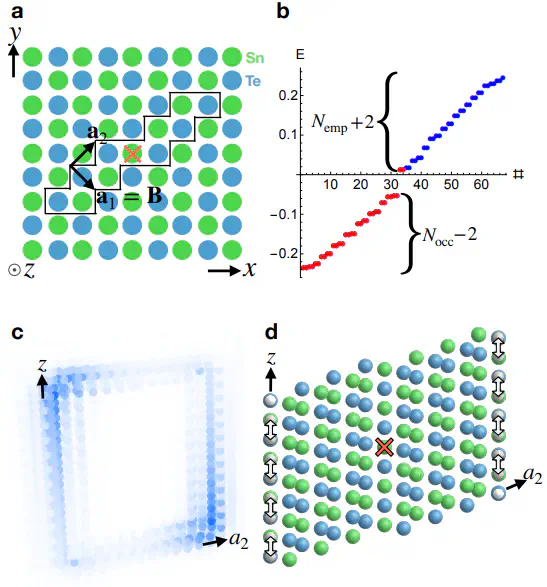Topological zero-dimensional defect and flux states in three-dimensional insulators

Abstract
In insulating crystals, it was previously shown that defects with two fewer dimensions than the bulk can bind topological electronic states. We here further extend the classification of topological defect states by demonstrating that the corners of crystalline defects with integer Burgers vectors can bind 0D higher-order end (HEND) states with anomalous charge and spin. We demonstrate that HEND states are intrinsic topological consequences of the bulk electronic structure and introduce new bulk topological invariants that are predictive of HEND dislocation states in solid-state materials. We demonstrate the presence of first-order 0D defect states in PbTe monolayers and HEND states in 3D SnTe crystals. We relate our analysis to magnetic flux insertion in insulating crystals. We find that π-flux tubes in inversion- and time-reversal-symmetric (helical) higher-order topological insulators bind Kramers pairs of spin-charge-separated HEND states, which represent observable signatures of anomalous surface half quantum spin Hall states.